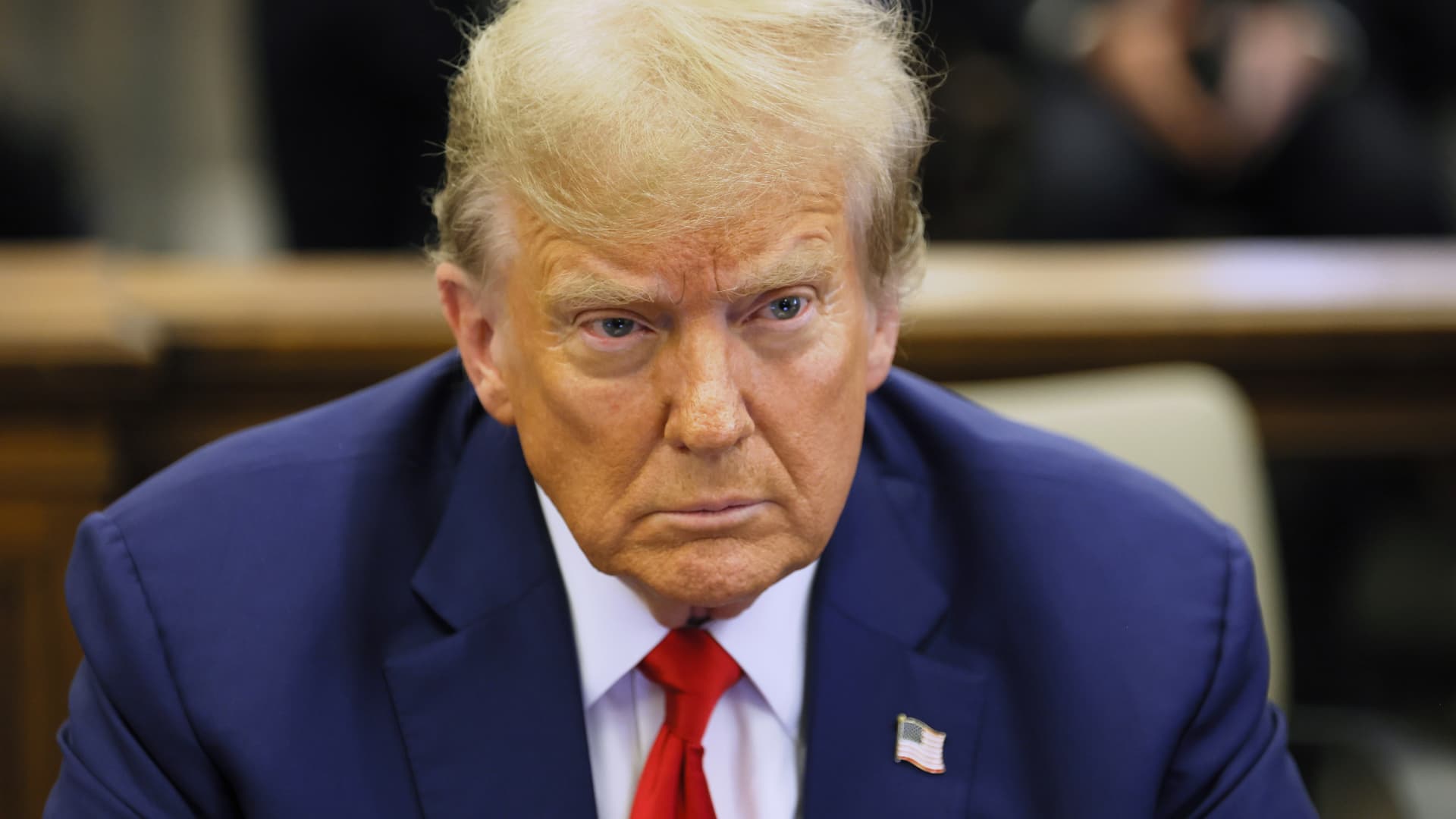Former U.S. President Donald Trump sits in the courtroom during his civil fraud trial at New York Supreme Court on January 11, 2024 in New York City.
Michael M. Santiago | Getty Images
Supreme Court Chief Justice John Roberts on Tuesday told Department of Justice special counsel Jack Smith to respond to a request by Donald Trump to delay implementing an appeals court ruling that found he does not have presidential immunity in his federal election interference criminal case.
Roberts gave Smith a full week, until Feb. 20, to file an answer to the former president’s request, suggesting that the court might take its time reviewing broader questions related to the issue of immunity.
Later Tuesday, a group of former officials in Republican presidential administrations from Richard Nixon to Trump in a filing with the Supreme Court said Trump has failed to make “two of the mandatory showings required for a delay of” the appeals court ruling.
The former officials in that filing also said that “rejection of absolute immunity in this case is essential to protecting” the Constitution’s “design of the Presidency itself.”
“This Court should deny a stay in this case because Mr. Trump’s claim of such a boundless immunity is wrong,” the filing said.
Trump on Monday asked the high court to temporarily pause last week’s decision by a three-judge federal appeals court panel in Washington, D.C., which rejected his argument that he could not be prosecuted in the case because he was president at the time he committed the acts that Smith charges were crimes.
Trump is accused in a four-count indictment in D.C. federal district court of crimes related to his challenge of the 2020 election results, and his efforts to block Congress from declaring President Joe Biden the victor in that contest.
He has pleaded not guilty in the case.
Trump, in his filing Monday, asked the Supreme Court to delay the appeals court’s mandate.
If that mandate takes effect, proceedings in the case would resume in district court, including pretrial motions being filed and argued, and the judge is likely to set a trial date before the end of this year.
Trump argues that implementing the mandate would “radically disrupt” his ability to campaign against Biden this year.
Trump, who is the front-runner for the Republican presidential nomination, in his filing said he wants the mandate delayed pending the resolution of two related efforts to undo the appeals court ruling. Trump said he will ask the Supreme Court to take his appeal of the lower court’s decision, and he will also request that the entire judicial lineup of the appeals court rehear his argument on presidential immunity.
The Supreme Court could grant or deny that delay request, without hearing any oral arguments, after Smith files his response.
But the court also may choose to treat Trump’s filing as a petition to overturn the appeals court ruling and make a decision on that question either based just on written filings, or after hearing oral arguments. That route would lead to further delays in the case.
In their brief Tuesday, the group of former Republican officials said “Preservation of the Presidency designed by Article II [of the Constitution] requires rejection of immunity from prosecution for a President’s engaging in violations of federal criminal statutes to alter declared presidential election results, whether that conduct consists of acts as a candidate, official acts, or both.”
The brief said Trump argues that he was acting officially as president “when he allegedly conspired to commit federal criminal conduct by using Department of Justice personnel to make false statements to state officials to support his efforts to overturn declared state election results.”
“If that qualified for absolute immunity, the precedent would improperly encourage a future President to violate federal criminal statutes by deploying the military and armed federal agents in efforts to alter the results of a presidential election,” the filing warned.

